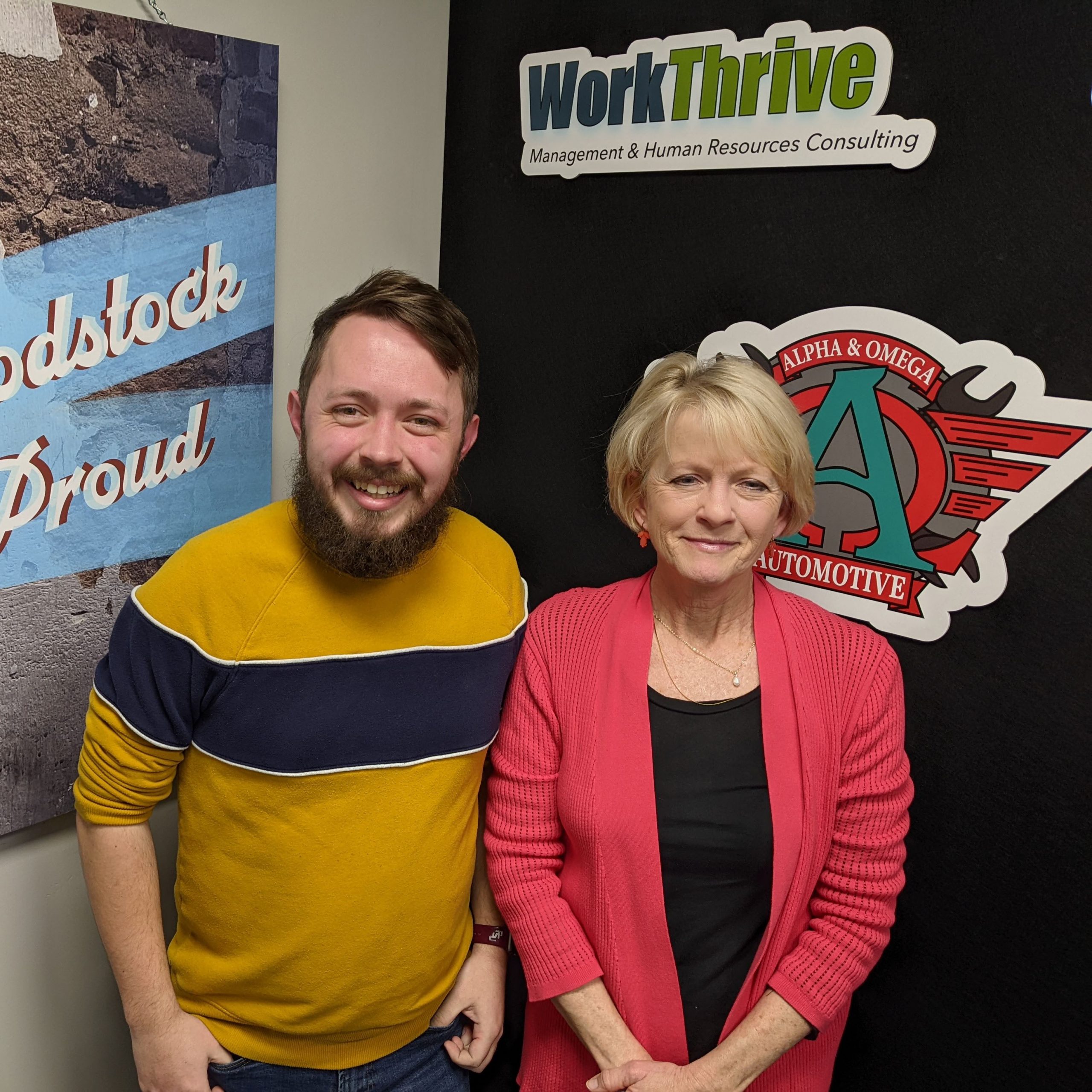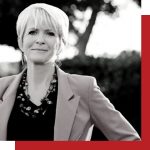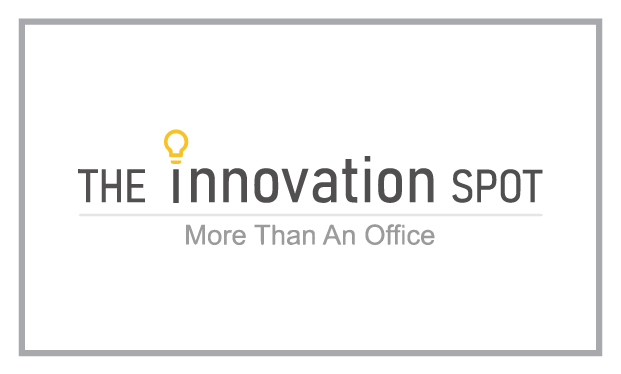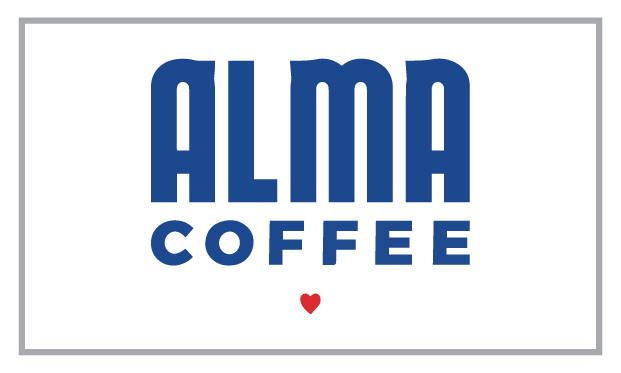
This Episode was brought to you by
 Marie Davis, Executive Director at Path To Shine
Marie Davis, Executive Director at Path To Shine
Marie is an Atlanta, Georgia native. After obtaining a Social Work degree at The University of Georgia, she served as a foster care coordinator for the State of Georgia, certifying foster parents and working with foster care children. After obtaining a Series 7 and 63 financial license, she worked with a private financial firm as Assistant to the President.
While raising her two children, Marie worked for a local developer, forming relationships with County and State officials. Moving to Florida for ten years, Marie served as a Targeted Case Manager with Children’s Home Society of Florida and a certified tutor for autistic children. Marie also served as the Director of Mentoring for Center Point, a non-profit in Hall County Georgia. She recruited and trained mentors for several school systems.
She is also a Technical Assistant for www.mentoring.org, the National MENTOR program; through that program, she works with mentor programs across the country to help them with direction and development. Program innovation and designing ways to serve all children through mentorship is what she loves best about her job. Marie also serves on the Georgia Mentor Provider Council.
Currently, Marie is the Launch Manager for Georgia Center for Employee Ownership, directing the opening of the Georgia program.
Follow Path To Shine on LinkedIn and Twitter.
 Brian Gamel, Managing Director at Woodstock Arts
Brian Gamel, Managing Director at Woodstock Arts
Brian Gamel grew up in the Woodstock area and has loved this town ever since. After going off to get his undergraduate degree in Theatre from Florida State University he came back home and became a part of the Elm Street Cultural Arts Village’s team, now known as Woodstock Arts.
 This transcript is machine transcribed by Sonix
This transcript is machine transcribed by Sonix
TRANSCRIPT
Intro: [00:00:07] Welcome to Franchise Marketing Radio, brought to you by SeoSamba Comprehensive, high performing marketing solutions for mature and emerging franchise brands to supercharge your franchise marketing. Go to seosamba.com that’s seosamba.com.
Lee Kantor: [00:00:31] Lee Kantor here, another episode of Franchise Marketing Radio, and this is going to be a fun one today on the show, we have Angela Pauls with buzz franchise brands. Welcome, Angela.
Angela Paules: [00:00:41] Thank you. Good to be here.
Lee Kantor: [00:00:43] Well, I’m excited to learn what you’re up to. Tell us a little bit about buzz. How are you serving folks?
Angela Paules: [00:00:48] So bus franchise brands were a multi brand franchising company, and our current brand portfolio includes Pool Scouts, which is a residential school cleaning franchise. Home Claim Heroes, which is residential house cleaning, and British Swim School, which is water safety and swim instruction for kids and adults of all ages.
Lee Kantor: [00:01:10] Now what was the kind of how did the the company get started? Did it start in one brand and then evolved into these others? Or was it built to be a conglomerate all along?
Angela Paules: [00:01:21] Yeah, it actually it did start as one brand. In fact, our our founding brand was Mosquito Joe, and it’s that started in 2012 when our CEO, Kevin Wilson, purchased a local mosquito control business that was operating in the Hampton Roads, Virginia, area and called Mosquito Joe, and was working with the founders to expand the business through franchising. And so he recruited the our initial corporate team of about five people, myself included. And we were really tasked with taking that local business that had two trucks operating and a few hundred customers and turned it into what became one of the fastest growing franchises, especially in the home services space. We grew that business to over three hundred and fifty locations and eventually sold it in 2018 to neighborly. So along the way, in about 2015, we sort of transitioned into a multi brand strategy and that was really kind of the birth of the parent company of bus franchise brands and and really we we saw what we were doing with Mosquito Joe, and we just felt like we could serve in other ways. We had a really strong team, some really strong systems in place. And so in 2016, we launched pool scouts and both with the local operation that we operated and franchising effort simultaneously. And then just about a year later, we launched a local operation for home clean heroes and began franchising that business in Twenty Eighteen, which was the same year as I mentioned that we sold Mosquito Joe. And then in 2019, we acquired British Swim School. So that’s how we got to three brands currently, and our intent is to continue to build additional brands over the years to come. We sort of put everything on pause as far as larger brand portfolio growth during COVID so that we could really focus on our existing franchises and everything that they were going through and the additional support that they needed during that time. But now that everybody’s back up and operating and things are turning more normal than they have been in the last few years, we’re ready to continue to build on that as well.
Lee Kantor: [00:03:57] And the name buzz is an homage to the beginnings at mosquito growth.
Angela Paules: [00:04:03] It’s a bit of a it’s a bit of both. It’s kind of a nice tie to that. But we also are. Our tagline is that we build build companies that get people talking. And so just kind of being the the buzz, we’re very people oriented businesses. All of our brands are service focused businesses. And so it’s really that building the buzz in the communities through the services that we’re providing
Lee Kantor: [00:04:26] Now, I’m seeing more and more kind of clusters of brands around a certain type of customer. Is that kind of your strategy and that this in this home services space, a customer to one of your brands might be a customer to, you know, all of your brands?
Angela Paules: [00:04:45] Potentially. Yeah, we definitely started in the home services space, mosquito pool scouts and home clean heroes. All very much home service focused British Swim School was a bit of a divergence from that, but in that it’s not a home service, but it is still bringing our services to people in. The consumer doesn’t look that different from those in our other brands, so we certainly look for opportunities to have customers who would fit multiple of our brands, but we also don’t try to force that relationship. We in markets where we have multiple operating brands, we certainly provide all the support and materials to make sure that people are aware that we have sister brands. And and there may be some promotional opportunities around that, but we don’t want to lose the core consumer for each of our individual brands or that core message either. So it’s I think there’s a bit of a balance there between maintaining that authenticity and being able to encourage people that if you’re happy working with us in this capacity with this brand and we’re cleaning your house and you also have a pool, we can help you there as well.
Lee Kantor: [00:05:58] Now does that help in the acquisition of franchisees to to give them a path to create multiple revenue streams with kind of that economies of scale of the customer acquisition?
Angela Paules: [00:06:10] Yeah, it is certainly something that’s out there, we don’t have we only have a couple franchisees at this point that are operating more than one brand. And it’s it’s again one of those things where we want to see a franchisee typically come in with focused on one brand and really get them successful in that space first and then look at, OK, what are ways that we can continue to build on your business? Is it opening additional territories of that particular brand and growing that way? Or is it adding a complementary brand in your area and growing that way? There’s a few different options there, so we’ll work with franchisees to figure out what’s the best fit for them
Lee Kantor: [00:06:49] Now as part of your secret sauce, the ability to identify and acquire franchisees is that what makes you special? It buzzes that part of what differentiates you or is your ability to kind of create these brands that the consumer gravitates towards.
Angela Paules: [00:07:11] Yeah, I think, you know, I’m a marketing person, so I’m pretty biased in that regard, but I would say that I think our marketing is something that differentiates us. We put a lot of emphasis into the brands that we build from the start. We do a lot of research, consumer research and get to get our brand set up strong for success from the start. And then we’ve built essentially an in-house agency of support. And so we have a digital team, we have a creative team that that’s capabilities go from everything designed to video and photography. We’ve got a direct mail marketing team and then we’ve got brand dedicated marketing teams that really help our franchisees focus on local marketing efforts like building partnerships and getting out there in their communities. And so even when we have a new emerging brand that may only have five core people on the team, they’re leveraging all these shared services marketing resources to give them an additional maybe 10 people who are also supporting that brand. So it is it’s a lot of being able to have some good in-house expertize across the different functions of marketing that I think really supports us and our franchisees being successful when it comes to customer recruitment and even just building the relationships with consumers beyond the initial acquisition as well.
Lee Kantor: [00:08:41] Now, any advice for an emerging franchise that’s out there, that is maybe at the beginning stages, you have a lot of track record and probably scar tissue of launching a new brand. Is there some kind of dos and don’ts you’ve learned over the years that help a emerging franchise? You know, maybe get that escape velocity they need to really, you know, have that explosive growth that you’ve experienced?
Angela Paules: [00:09:05] There’s a few things that come to mind. I mean, I think part of it is really hiring the right people. And and I think that goes functionally speaking, but also culturally speaking, you want to build a team of people who really believes in what they’re doing and who really cares about your company’s mission. Our mission at BFD is to enable people to realize their dreams, and that goes through largely through our franchisees having the business ownership opportunity. But it’s really important that all of our corporate team who are supporting our franchisees believes in that mission as well, and that they really care and see their own personal contribution through their role to supporting the franchisees. So that’s one thing I would say is, you know, hire slow, I guess, as they say, make good, make good decisions there. And then I think just be very aware of your situation and know that things may change and evolve as your your brand grows. So when we started out with Mosquito Joe and there were five of us. I wasn’t running an in-house agency at that point. I was outsourcing a lot of what we were doing from a marketing perspective because I was the only marketing resources resource. However, as our brand was growing and we were able to add more in-house support, we were able to over time sort of transition and bring more services in-house and kind of pick and choose what was outsourced first versus handled in-house.
Angela Paules: [00:10:45] So I think sometimes it can be tempting as an emerging brand to go out and ask everybody else what they’re doing, who’s really successful and then mirror that to a T. And sometimes that’s just not realistic, depending on where you are in that stage of growth for your brand. So I think being very aware of that and then the last thing I would say is staying very focused on your customer, knowing who that person is, communicating with them, regularly, sending them surveys after every service that you’re doing so that you know where where operations are going, well, where there’s opportunities for improvement, what you could do better to help retain them for a longer period of time or get them to maybe increase their spend and what they’re doing with you. But you don’t want to make assumptions on that sort of thing. And that can also change over time. So it shouldn’t be a one time communication, but making sure that you’re very focused on that. So whether you’re doing surveys or focus groups or or a variety of things, make sure that you you’re always staying in touch with who that customer is. And in prioritizing that as you think about the decisions that you make growing your brand.
Lee Kantor: [00:12:08] Now, from a tactical standpoint in marketing. As there are certain things that you see that emerging brands aren’t kind of leveraging to the degree that you would recommend, like are they leaning too heavily, maybe on digital marketing and they should be focusing on maybe more partnerships among, you know, human to human relationships and leverage those kind of things? Is there something that you see out there that you wish people would do more of?
Angela Paules: [00:12:36] Yeah, that’s a great question, and I do think there is a tendency. Everything really has gone digital in a lot of ways, and so that does tend to be our first place to go from a marketing perspective, and I see everybody throwing all their eggs in that digital basket. But the reality is there’s there’s still not a silver bullet when it comes to marketing, and the old adage of the rule of seven still applies where consumers, it’s going to take seeing your message several different times and in several different places before they’re going to take action. And I would say that that the current version of that is probably more like the rule of twenty five or something with the amount of media impressions that we’re exposed to on a daily basis. So you don’t want to count on the only place that you’re finding consumers to be online, you want people to certainly see messages online, and that’s a great place to communicate with people because we’re spending so much time there. But also, as you’re being active in the community, people still want to do business with people.
Angela Paules: [00:13:44] That has not changed. And so if you’ve got opportunities to have a face to face conversation with someone who could be a potential customer, you’re building a much stronger and more personal relationship from the start. And that’s going to be the kind of customer who feels like they know your brand and have a different level of loyalty to your brand. That’s going to be the one that’s telling their friends and referring other people to you. And and by nature, those referred customers are also going to be tend to be more loyal. So I definitely think local marketing is key and making sure that your franchisees feel comfortable and empowered to go out there and know how to speak about their business and where to speak about their business and what some of those partnerships that they should pursue are. Because I think that’s that’s probably one of the most important things. It’s just remembering that that people still want to do business with people. So the more that you can personalize that experience, the better.
Lee Kantor: [00:14:47] And and that’s really, I think one of the key learnings that a franchisee has to that mindset has to shift in terms of that’s something that they have to do. A lot of that kind of boots on the ground work of building those relationships. And it’s it’s not something that corporate can just run blanket ads and that’s going to be some magic ticket to success. It requires it’s a team, you know?
Angela Paules: [00:15:11] Exactly. And that’s one of the things, you know, when I have new franchisees come through training, a lot of them ask, You know, what is it that makes your most successful franchisees? What are they doing different than than those that are maybe just trucking along? And and I always say it’s the ones that that get out there and are active. And if you are not the kind of person who is very social or is a very comfortable networker or has the time to get out there and do things, that’s OK, but then you should definitely find someone that can do that for your business if it’s not you. So whether you’re hiring someone, whether you’re getting a college intern or somebody who is really passionate about representing your business and believes in your mission and love speaking with people and is going to be the brand ambassador out there where you’re branded polo and going and interacting in places where your customers will be. That’s really essential, right?
Lee Kantor: [00:16:16] It’s hard to kind of outsource that. If you’re going to outsource it, they you have to outsource it to somebody who is willing to be that evangelist that’s out there, human to human representing the brand, you need the brand ubiquity to a certain degree in order to get those seven to twenty five impressions so they can make an informed buying decision. So it’s going to happen one way or another. Either you’re going to pay for it in terms of running a million ads or you’re going to pay for it in terms of hiring the right person or you’re going to pay for it in terms of your time being out there, being that ambassador.
Angela Paules: [00:16:52] Exactly. And it’s probably going to be a combination of all of the above. But I do think one mistake that I do see people make is just trying to check that off the list and say, OK, well, we had a table at the local Fourth of July parade or something. It’s like, OK, but who is who was there representing you? Was it someone sitting in a chair behind the table waiting for people to approach them and ask questions? Or was it somebody out there engaging and handing out branded tchotchkes and interacting and starting conversations with the kids walking by? Or was it someone who was really going beyond and not expecting people to come? You are you going to engage with them?
Lee Kantor: [00:17:38] Right? And that’s that’s probably the key when you’re trying to identify that ideal franchisee. Or are they going to do that or do they have a plan to do to behave in that manner in order to get the success that both of you want?
Angela Paules: [00:17:52] Exactly.
Lee Kantor: [00:17:53] Now let’s talk a little bit about the idea of franchisee. Have you identified the type of person that makes a good buzz franchisee?
Angela Paules: [00:18:02] So we we talk about candidates who are passionate, hardworking and driven. I mean, that’s kind of the core of the core traits that we want. You know, a certain level of business understanding is is ideal. But there’s also that’s also pretty trainable area. We’ve got a lot of systems in place and we can educate on that. I think it comes down to people with our brands who are are passionate about people and who are people, people, you know, and and who can build those relationships. Those are the ones that are going to be successful. And then by each individual brand, there may be different aspects to to the brand that appeal to different types of people. So, for example, British Swim School or mission really is about helping to save lives and helping to reduce the situations of drowning across North America to by helping people understand and learn key lifesaving skills and water safety skills, and then learning how to swim. And so the type of person that’s going to be a great franchisee, there is someone who maybe really enjoys working with kids or really feels passionate about a purpose driven brand and making an impact in that way in their community pool scouts. It may be someone who has a little bit more technical or mechanical interest or background, or someone who wants to spend more time outside and what they’re doing. So it can. It can vary a bit by brand as well, but I think the core of it really is about being hardworking, enjoying working with people and building relationships.
Lee Kantor: [00:19:53] And if somebody wants to learn more about the brands and get on your calendar or somebody on the team’s calendar to have a more substantive conversation, what’s the website?
Angela Paules: [00:20:03] Yeah, so you can go to Buzz Franchise Brands, the best franchise brand, and that’s got links to all three of our different brands. And from there you can fill out forms to get in touch with us, and we’d love to share information with anyone about our brands.
Lee Kantor: [00:20:21] Well, Angela, thank you so much for sharing your story today. You’re doing important work and we appreciate you.
Angela Paules: [00:20:26] Thanks so much.
Lee Kantor: [00:20:27] All right, this is Lee Kantor. We’ll see you next time on Franchise Marketing Radio.
















